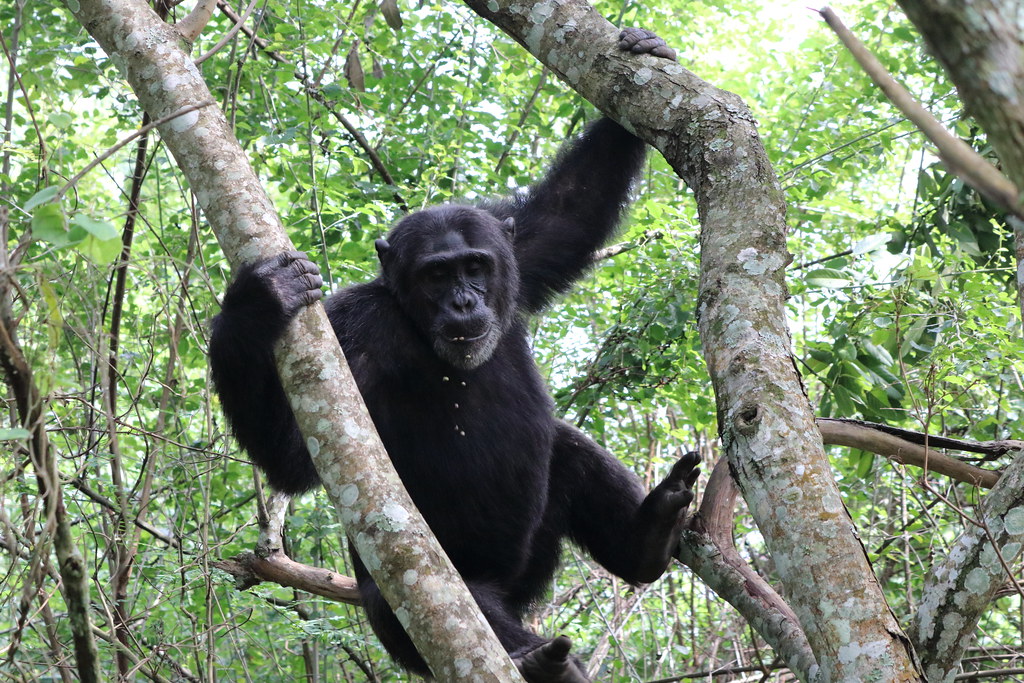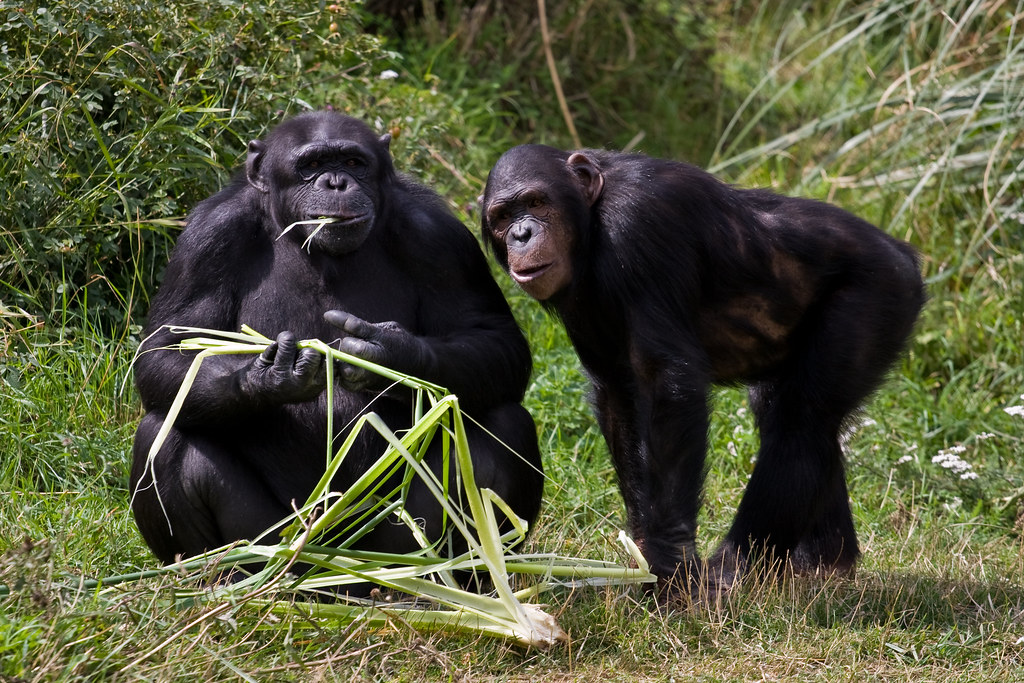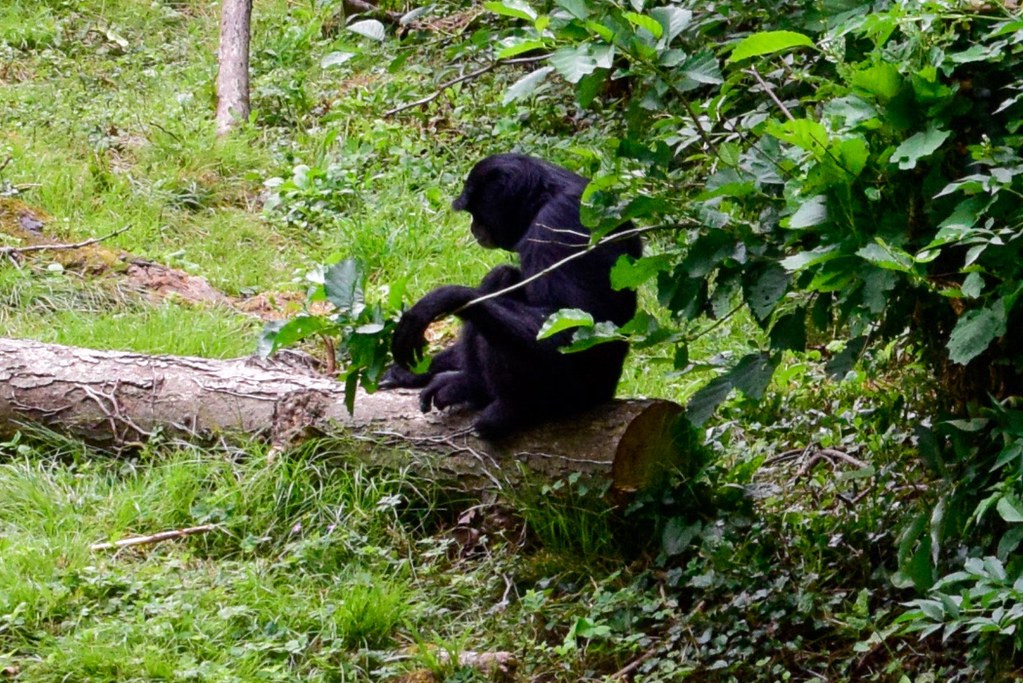Chimpanzee Trekking
Explore Chimpanzee Trekking In Africa
Chimpanzee trekking is one of Africa’s most intimate and soul-stirring wildlife experiences—second only to gorilla trekking in rarity and emotional depth. This immersive journey takes you deep into the heart of lush tropical forests where you’ll walk the same trails, breathe the same humid air, and share an hour with the brilliant, wild minds of our closest genetic relatives. Sharing approximately 98.7% of our DNA, chimpanzees are not just fascinating animals—they are reflections of ourselves. And nothing compares to watching them roam, feed, interact, or simply look back at you with those familiar, intelligent eyes.
Chimpanzee Trekking in Africa: A Wild Encounter with Our Closest Relatives
What Is Chimpanzee Trekking?
Chimpanzee trekking is a guided walk through protected forests in search of habituated chimpanzee communities. These chimpanzees have undergone a long, respectful process of habituation by researchers and conservationists, allowing humans to observe them up close without disturbing their natural behavior.
Unlike gorillas, chimpanzees are more active, more vocal, and more social. This means the trek is dynamic—you’ll hear them long before you see them. Loud hoots, drumming on tree trunks, sudden whoops of excitement—it’s a full-on jungle symphony. Once located, you’re granted up to one hour to observe them in the wild, moving through trees, grooming each other, playing, and even engaging in the complex behaviors of hierarchy and cooperation that mirror our own human societies.
Where Can You Go Chimpanzee Trekking in Africa?
Chimpanzee trekking is only possible in a few key regions of Africa where significant conservation and research efforts have made it safe and sustainable. These areas offer well-regulated trekking permits and experienced guides who track the chimps daily.
Uganda – The Primate Capital of the World
Uganda is arguably the best place for chimpanzee trekking, offering a variety of landscapes and well-established experiences.
Kibale Forest National Park: Known as the top chimpanzee trekking destination in Africa. This dense, emerald forest in western Uganda is home to more than 1,500 chimps, with several habituated groups available for trekking. The chances of spotting them here are above 90%.
Budongo Forest (Murchison Falls): A great option for those combining chimpanzee trekking with classic savanna safaris. This forest lies in the southern part of Murchison Falls National Park and offers rich biodiversity and fewer crowds.
Kyambura Gorge (Queen Elizabeth NP): Dubbed the “Valley of Apes,” this dramatic underground forest offers a stunning, off-the-beaten-path chimp trekking experience. Though sightings are less reliable than in Kibale, the scenery is unforgettable.
Rwanda – Trekking with Chimps in Nyungwe
Nyungwe Forest National Park in southwestern Rwanda is a montane rainforest that offers one of the most unique chimpanzee trekking experiences. Trekking here is more physically demanding due to the steep terrain, but it is richly rewarding. The forest is also home to 13 other primate species, making it one of the most biologically diverse places in Africa.
Tanzania – The Legendary Wild Chimps
Tanzania offers a more remote and adventurous kind of chimp trekking, often reached only by boat or small aircraft.
Gombe Stream National Park: Made famous by Dr. Jane Goodall’s groundbreaking research, Gombe is a sacred ground for primate lovers. Located on the shores of Lake Tanganyika, Gombe offers a rare opportunity to trek chimps in the very forest where they were first studied in the wild.
Mahale Mountains National Park: Even more remote than Gombe, Mahale is often described as Africa’s most magical chimp trekking location. Imagine trekking barefoot through the white sands of a lakeside beach before heading into a forest filled with vocal chimps—this is Mahale.
What to Expect During a Trek
Chimpanzee trekking usually begins early in the morning, after a safety briefing and group assignment. Groups are kept small (6–8 people), and you’re guided by experienced rangers and trackers who monitor chimp movement daily. You’ll follow forest trails and use your ears more than your eyes—chimpanzees announce their presence with echoing calls and branch-thumping displays.
Chimpanzees are much faster and more agile than gorillas, often moving through the treetops or shifting rapidly from place to place. So don’t expect to sit in one spot and quietly observe them. You may need to follow them, navigating through thick vegetation or uneven ground. But when you do catch up and see a mother nursing her baby, or a dominant male asserting his place with chest-beating displays, it will feel like the jungle is revealing its most sacred truths.
Chimpanzee Trekking Permits and Prices (2025)
Permit prices vary depending on the country and park, but they all contribute to conservation and community support:
Uganda (Kibale Forest): Around $200–$250 USD
Uganda (Kyambura or Budongo): Around $50–$130 USD
Rwanda (Nyungwe Forest): $150 USD
Tanzania (Gombe or Mahale): Entry fees are lower, but total cost is higher due to travel logistics—roughly $100–$150 USD, excluding park access and guides.
These permits help fund protection of chimpanzee habitats, research initiatives, ranger salaries, and eco-tourism programs that directly benefit local communities.
Is It Safe and Ethical?
Yes, chimpanzee trekking is both safe and ethical when conducted through official national park services or licensed operators. Treks are strictly regulated: no touching the chimps, no flash photography, and you must maintain a safe distance to protect both you and the animals from disease transmission. Many parks require visitors to wear masks when near chimpanzees, as our shared DNA makes them vulnerable to human illness.
Your guides are trained not just in wildlife tracking, but also in reading chimp behavior. They’ll help ensure your experience is memorable, safe, and respectful. Choosing ethical operators also guarantees that your tourism dollars support long-term conservation rather than exploitation.
Why You Should Go Chimp Trekking
Because it’s real. Because it’s raw. Because it’s a rare chance to watch wild animals that are so much like us, yet so deeply tied to the forests we’ve long forgotten how to understand. Chimpanzees are bold, intelligent, emotional creatures. Seeing them in their natural home—communicating, laughing, fighting, caring—is a profound reminder of our place in nature.
And for many travelers, chimpanzee trekking becomes the highlight of their African journey, even when stacked against lions, elephants, and gorillas. Because in those forests, when you look into a chimp’s eyes and it looks back without fear, what you see isn’t just wildlife. You see a shared ancestor. A mirror of ourselves.





